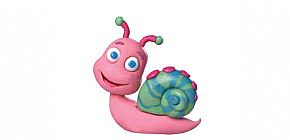Eating Healthy from the Start: An Iron-rich Diet
.jpg) |
|
Many infants suffer from an iron deficiency, which is likely to affect their future development, even if their nutrition and weight are on par. As such, the Health Ministry recommends administering iron drops on a daily basis, in conjunction with an iron-rich diet. Here, you’ll be able to get to know the iron-rich foods that are suitable for infant consumption.
Is your infant taking their first steps into the world of solid foods? It’s important to start off on the right foot and supply iron-rich foods from the get-go. Iron is an essential mineral we all need, especially during the first year-and-a-half of life. During this stage, the infant triples their body weight and gradually transforms from a newborn to an active toddler. An iron deficiency can prevent the body from accessing those essential building blocks and can lead to anemia - a known inhibitor of motor and cognitive development. A deficiency in iron in this stage, cannot be returned at a later date.
The Health Ministry recommends administering iron drops to all infants between the ages of 4 and 18 months, but it is important to support the body with an iron-rich diet as well. How do you do it right?
How much iron does an infant need?
In a regular meal, only 10% of the iron from animal-based foods and 1% of the iron from plant-based foods are absorbed by the bloodstream. Your infant loses roughly 1-2 mg of iron each day, the amount you need to ensure is replaced via proper nutrition and nutritional supplements. Since only a small amount of the iron is absorbed by the body, your infant’s daily menu should include approximately 5-10 mg of iron.
Here are some examples of foods and how much iron from them is absorbed by the body:
100 grams of chicken -
Contains: 1-1.5 mg iron
Amount absorbed: 0.1-0.15 mg iron
100 grams of turkey -
Contains: 1.5-2 mg iron
Amount absorbed: 0.15-0.2 mg iron
½ cup of lentils -
Contains: 3 mg iron
Amount absorbed: 0.03 mg iron
1 TBSP whole tahini -
Contains: 1.5 mg iron
Amount absorbed: 0.015 mg iron
How to iron absorption
-
Foods that encourage iron absorption: It is recommended to eat iron-rich foods together with foods that contain vitamin C, such as fresh tomatoes, citrus fruits, red pepper and strawberries.
-
Foods that inhibit iron absorption: It is recommended to avoid eating iron-rich foods together with dairy products, as calcium and casein (protein found in milk) inhibit the absorption of iron. It is also recommended to avoid foods that contain caffeine, like cocoa, fizzy drinks, tea, etc.
Which iron-rich foods are suitable for infants?
-
Animal-based products: chicken, turkey, red meat and fish
-
Plant-based products: tofu (up to 2 times a week), whole grains, tahini, almond butter and legumes
-
Dairy products: While milk does inhibit iron absorption, there are currently iron-enriched dairy products on the market that are designed in a way that prevents the dairy from harming the iron. It is also recommended to use iron-enriched infant formula and cereals.
-
Fruits and vegetables: spinach, parsley, Jerusalem artichoke, persimmon, dried fruit. Note that iron from plant-based products is absorbed less efficiently by the body.
In addition, be sure to administer an infant iron supplement that has been approved by the Health Ministry’s Pharmaceuticals Department for use in preventing infant anemia.
How to check infant iron levels
The only way to know your infant’s iron levels is by taking them for a blood test. The current recommendation is to have a first blood test performed at 9 months. Ask your child’s pediatrician for a referral.


.jpg)
.jpg)
.jpg)
.jpg)



.jpg)
.jpg)
.jpg)
.jpg)

.jpg)


Contact us